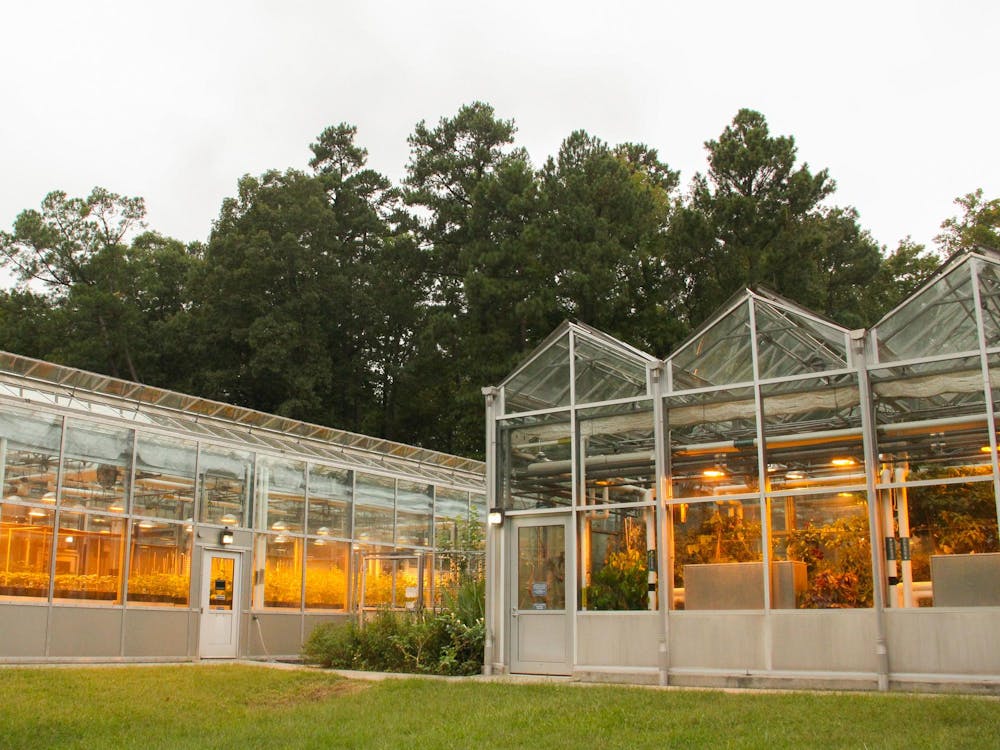Duke researchers discovered a relationship between a plant’s genes, microbiome and autoimmunity, offering potential applications in resisting climate change and improving human gut health.
The study, conducted in the Sheng-Yang He Lab in the Biology Department and published in Nature Plants Sept. 6, identifies that certain genes code for the composition of a plant’s microbiome and that if these genes are modified, the plant can become unhealthy.
Led by Sheng-Yang He, Benjamin E. Powell distinguished professor of biology, the study focused on a small plant called Arabidopsis. Researchers artificially mutated the plant’s TIP1 gene, which helps guard plants against a potentially damaging abnormal microbiome. Consequently, they found the plant’s autoimmune system malfunctioning.
“If you disturb some genes in the genome of a plant Arabidopsis, you end up with some plants that are unable to configure the right amount of microbiota,” He said. “They’re actually not happy. They're not healthy, they're small, there’s tissue damage — they don't like it.”
According to He, the study took eight to nine years and relied on Duke facilities, particularly the Phytotron — a controlled research environment containing greenhouses located next to the French Family Science Center. There, the faculty could engage in high-end experimentation with plant life.
“It's quite laborious … it’s a lot of genetics, a lot of microbiology work, a lot of plant biology work, and I would say that it would be not possible if we [did not have] facilities at Duke,” He said of the research process.
While the study focused on one plant, it has broader implications for agriculture and the understanding of the human gut microbiome.
According to He, crops often experience post-harvest issues due to a change in the composition of their microbiome, with up to 40% of crops lost annually, particularly outside the Western world.
However, the study’s findings could lead to developments of probiotics, a healthy microbiome composition that can be inserted into plants and reduce this problem.
“If it works, it could be quite huge in total contributions … to see whether we use a healthy microbiota to reduce the harmful effect of bad microbiota,” he said.
Moreover, when consuming fruits and vegetables, much of the plants’ microbiome is transferred into the human gut. This makes the health of fruit and vegetable microbes important for long-term human health.
He is active in the Duke Microbiome Center, which is largely focused on the human microbiome, despite his personal focus on plant microbiomes. The center emphasizes “one health,” an approach that considers how the health of humans, animals and plants is interconnected.
Looking to the future, He and other Duke researchers are looking into how microbiome composition can impact crops’ resilience to climate change.
“What we [will] try to do is to design a very climate resilient microbiome to be able to reduce disease, reduce post-harvest decay, [and] make plants more resilient to stress response,” He said. “... We always talk about human health, but without solving the basic food and plant health issues, you have a fundamental problem.”
Get The Chronicle straight to your inbox
Sign up for our weekly newsletter. Cancel at any time.
Dylan Halper is a Trinity first-year and a staff reporter for the news department.

